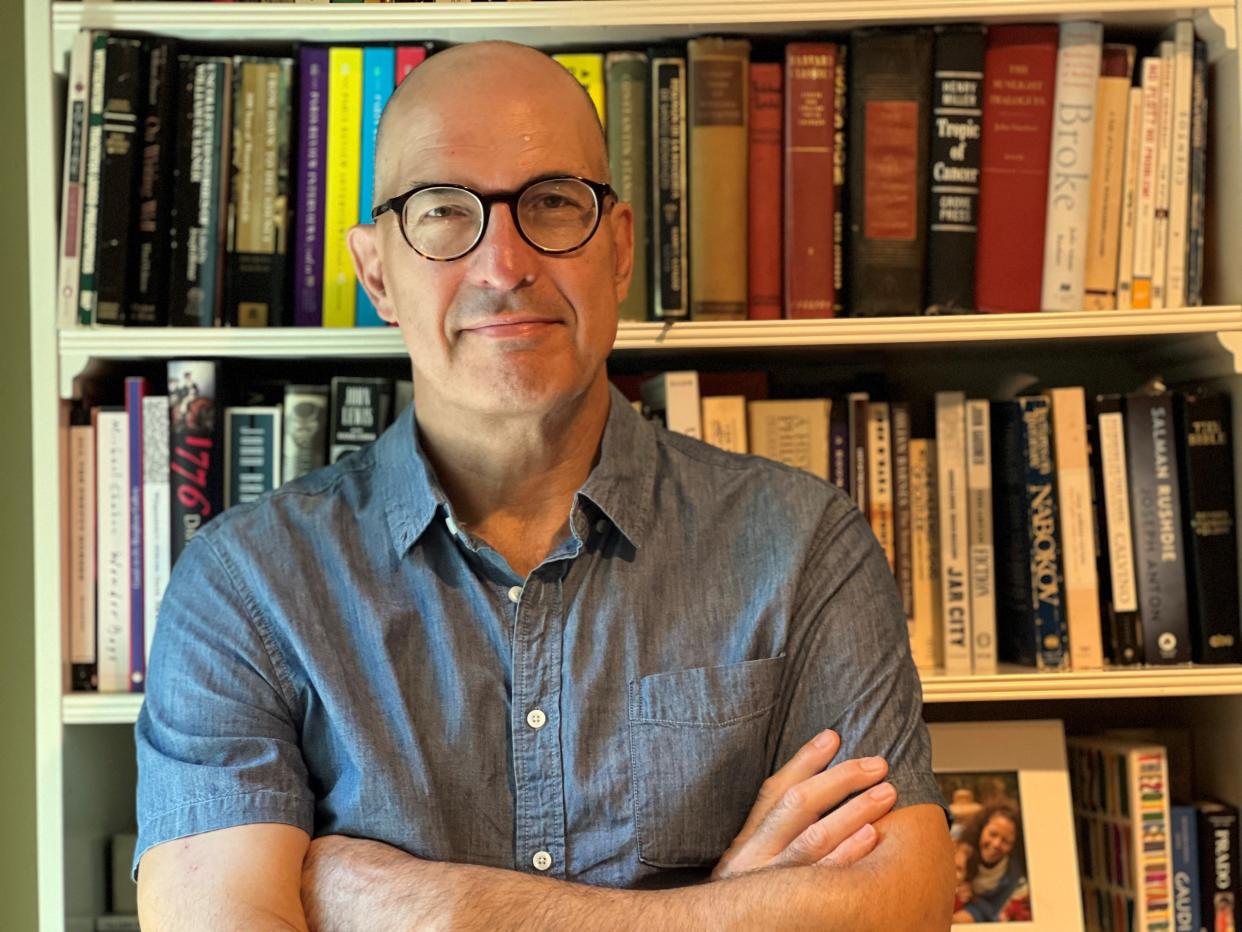The decision to overturn Roe v. Wade changes everything
- Oops!Something went wrong.Please try again later.
- Oops!Something went wrong.Please try again later.

Hello,
This is Todd Spangler, the Freep's longtime Washington D.C. correspondent. While I could mention a lot of stuff that happened this week — from the continuing investigation into the Jan. 6, 2021 attack on the U.S. Capitol to the first significant piece of gun control legislation passed by Congress in decades — the big news came this morning when the U.S. Supreme Court dropped its decision overturning Roe v. Wade.
That's the landmark decision that for nearly 50 years guaranteed a right to abortion and has withstood numerous legal challenges over the years. This time, however, the conservative majority on the court decided otherwise, voting 6-3 to uphold a restrictive abortion law from Mississippi.
One of the six, Chief Justice John Roberts, said he wouldn't overturn Roe in its entirety and that pregnant people should have a "reasonable opportunity" to elect an abortion, but the other five — still a majority of the nine-member court — said there is no constitutional right to an abortion and the states can decide what restrictions they want to put into place.
It's easily the biggest, most consequential decision to come out of the court in years and it's going to have an impact in Michigan, though it may take some time to determine exactly what that will be.
The law on the books in Michigan, which prohibits practically all abortions other than in cases where a pregnant person's life is in danger, was enacted in 1931 and has stayed on the books. Theoretically, that would go into effect now, only a Court of Claims judge had already issued an injunction stopping it from doing so in expectation that the Supreme Court would overturn Roe.
But that decision could get overturned as well. Meanwhile, Gov. Gretchen Whitmer has again asked the state Supreme Court to intervene and toss the 1931 law as out of step with Michigan's constitution. We'll see what happens but whatever does, don't expect it to be the last word: The U.S. Supreme Court's decision (which will be known forever as Dobbs v. Jackson Women's Health Organization, or, simply, Dobbs) is going to play out for years.
For instance, today, President Joe Biden urged voters to come out in droves this fall and elect a new Congress that would write a federal law protecting abortion access. That's a tall order, given the near-equal partisan divide in Congress and the hold abortion opponents have on the Republican Party, but there is no doubt that Dobbs is going to be a big political deal this year.
There are going to be protests, too — count on it. Biden urged people to be peaceful but there is no question that the decision is going to inflame a lot of abortion rights supporters, who argue passionately that a pregnant person should be able to decide whether to carry a child to term or not as a matter of personal autonomy. Abortion opponents, who now have their biggest victory, are just as convinced that terminating a pregnancy is essentially killing a person. In between there are a range of opinions about who should be allowed to have an abortion, when and under what circumstances.
Why did the Supreme Court decide the way that it did? For Justice Samuel Alito, writing for the majority, it was a question of construction: To his and the other majority justices' way of thinking, abortion isn't mentioned in the U.S. Constitution and there isn't any reason to believe the founders would have guaranteed it, so it should be left up to the states to decide.
"Abortion presents a profound moral question," he wrote. "The Constitution does not prohibit the citizens of each state from regulating or prohibiting abortion (and the court) ... returns that authority to the people and their elected representatives."
Justice Stephen Breyer, who is retiring at the end of the term, wrote for the three liberal justices who dissented, blasting Alito's decision. "It says that from the very moment of fertilization, a woman has no rights to speak of," Breyer wrote. "A state can force her to bring a pregnancy to term, even at the steepest personal and familial costs."
It's a profound difference, one that's going to continue to split Michigan, and the nation, for the foreseeable future. As always, we at the Free Press will continue to cover the issue, providing views from all sides and watching how it plays out in the courts, among policymakers and with the public.
Contact Todd Spangler at tspangler@freepress.com. Follow him on Twitter @tsspangler. Read more on Michigan politics.
This article originally appeared on Detroit Free Press: The decision to overturn Roe v. Wade changes everything

